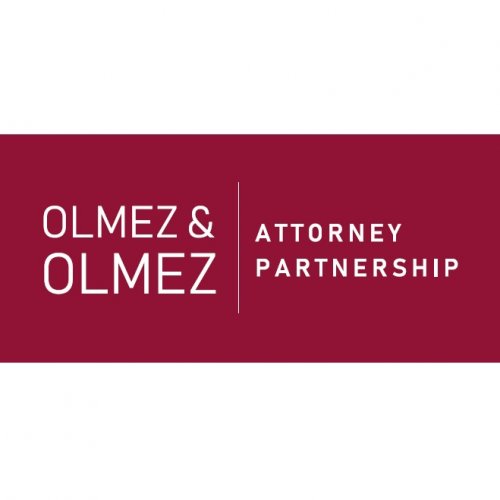Best Conveyancing Lawyers in Kartal
Share your needs with us, get contacted by law firms.
Free. Takes 2 min.
Free Guide to Hiring a Real Estate Lawyer
List of the best lawyers in Kartal, Turkey
About Conveyancing Law in Kartal, Turkey
Conveyancing in Kartal, Turkey refers to the legal process of transferring property ownership from one party to another. Situated on the Asian side of Istanbul, Kartal has seen significant residential and commercial development, making property transactions common. The conveyancing process involves a series of legal steps, including due diligence, drafting and reviewing sales contracts, conducting official title searches, and finalizing the sale before a notary public or relevant Land Registry office. Turkish conveyancing law is governed by a combination of national civil code and local regulations specific to the Istanbul region, which means that local practices and requirements can play an important role in any transaction.
Why You May Need a Lawyer
Purchasing or selling real estate in Kartal can be a complex process involving negotiations, paperwork, and strict regulatory requirements. A lawyer with expertise in conveyancing can help you:
- Ensure the property title is clear and free from encumbrances
- Prepare and review sale and purchase agreements for accuracy and fairness
- Handle issues related to zoning, permits, or property taxes
- Assist with inheritance or shared ownership disputes
- Support foreigners or non-residents with unique legal requirements
- Verify that deposits are held and transferred in accordance with legal requirements
- Advise you on risks and obligations before signing any binding documents
With professional legal help, parties to a property transaction in Kartal can minimize risks, avoid delays, and ensure that their rights and interests are protected at all stages of the conveyancing process.
Local Laws Overview
The primary legislation for conveyancing in Kartal comes from the Turkish Civil Code, Land Registry Law, and local municipal rules. Key legal aspects include:
- All property transfers must be registered at the local Land Registry (Tapu ve Kadastro Müdürlüğü).
- Bilateral presence or legal representation at the signing is mandatory for both buyer and seller.
- Foreign nationals are subject to specific requirements for property acquisition, including military approval in some cases.
- Purchase contracts should always be signed before a notary public for additional legal security.
- Both parties need to clear all obligations related to tax debts and building usage permits before transfer.
- Disputes arising from conveyancing are generally handled by local civil courts or arbitration bodies.
These local and national laws ensure that the conveyancing process is transparent, secure, and legally binding for all parties in Kartal.
Frequently Asked Questions
What documents are required for property conveyancing in Kartal?
Key documents include the title deed, identification for both parties, property tax receipts, earthquake insurance policy (DASK), and in some cases, permits or residency documents for foreigners.
Is the presence of a lawyer mandatory for conveyancing in Turkey?
No, but it is highly recommended as legal procedures and documentation can be complex, and a lawyer safeguards your interests.
How long does the conveyancing process take in Kartal?
The process can take anywhere from a few days to several weeks, depending on the complexity of the transaction and documentation readiness.
Can foreign nationals buy property in Kartal?
Yes, but some restrictions apply. Foreigners need to get security clearance and meet additional legal requirements set by Turkish law.
What taxes or fees are payable during conveyancing?
The main costs include transfer tax, notary fees, title deed fees, and sometimes value added tax (VAT) depending on the property type.
When is payment due during the conveyancing process?
Payment timing is typically stipulated in the sale agreement and is often due upon signing at the Land Registry, but deposits may be required earlier.
What are common risks in property transactions?
Risks include unclear title, outstanding debts on the property, illegal constructions, zoning issues, and missing documentation.
Can I buy property in Kartal remotely?
Yes, with a properly executed power of attorney, a legal representative can complete the transaction on your behalf.
What happens if the property has legal disputes or encumbrances?
Such issues must be resolved before the property can be legally transferred. A lawyer will help identify and remedy these matters.
How can I verify the authenticity of a title deed?
The authenticity and status of a title deed should be checked directly with the local Land Registry office, preferably with legal support.
Additional Resources
If you need guidance or information on conveyancing in Kartal, the following resources may be helpful:
- Kartal Land Registry Directorate (Tapu ve Kadastro Kartal Müdürlüğü)
- Istanbul Bar Association for finding qualified property lawyers
- Kartal Municipality (Kartal Belediyesi) for zoning and permit information
- Turkish Ministry of Environment, Urbanization, and Climate Change for national property rules
- Ministry of Interior General Directorate of Land Registry and Cadastre
Next Steps
If you are considering buying or selling property in Kartal or have encountered legal concerns during a transaction, consider the following steps:
- Gather all relevant documents related to the property
- Contact a qualified conveyancing lawyer in Kartal for a preliminary consultation
- Visit or call the local Land Registry office for up-to-date requirements
- Do not sign any documents or make payments until all due diligence is complete
- Ask your lawyer to check for current zoning approvals, usage permits, and outstanding debts
Seeking professional legal advice early in the process is the most effective way to protect your interests and successfully navigate the conveyancing process in Kartal, Turkey.
Lawzana helps you find the best lawyers and law firms in Kartal through a curated and pre-screened list of qualified legal professionals. Our platform offers rankings and detailed profiles of attorneys and law firms, allowing you to compare based on practice areas, including Conveyancing, experience, and client feedback.
Each profile includes a description of the firm's areas of practice, client reviews, team members and partners, year of establishment, spoken languages, office locations, contact information, social media presence, and any published articles or resources. Most firms on our platform speak English and are experienced in both local and international legal matters.
Get a quote from top-rated law firms in Kartal, Turkey — quickly, securely, and without unnecessary hassle.
Disclaimer:
The information provided on this page is for general informational purposes only and does not constitute legal advice. While we strive to ensure the accuracy and relevance of the content, legal information may change over time, and interpretations of the law can vary. You should always consult with a qualified legal professional for advice specific to your situation.
We disclaim all liability for actions taken or not taken based on the content of this page. If you believe any information is incorrect or outdated, please contact us, and we will review and update it where appropriate.









